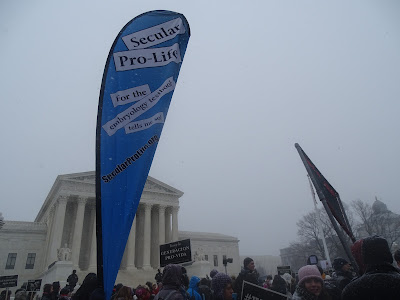The word “fetus” is nothing to fear — or to censor
Correction: It now appears that the list of words was not a strict ban, and that the list came not from the Trump administration, but from within the CDC itself.
Last Friday, news broke that the Trump administration has instructed the Centers for Disease Control (CDC) not to use the words “evidence-based,” “science-based,” “vulnerable,” “entitlement,” “diversity,” “transgender,” and “fetus” in official government documents. This is a bizarre decree for a number of reasons, and I personally have thoughts about all seven banned words, but for purposes of this article I will limit my commentary to the last word: fetus.




Leave a Reply
Want to join the discussion?Feel free to contribute!